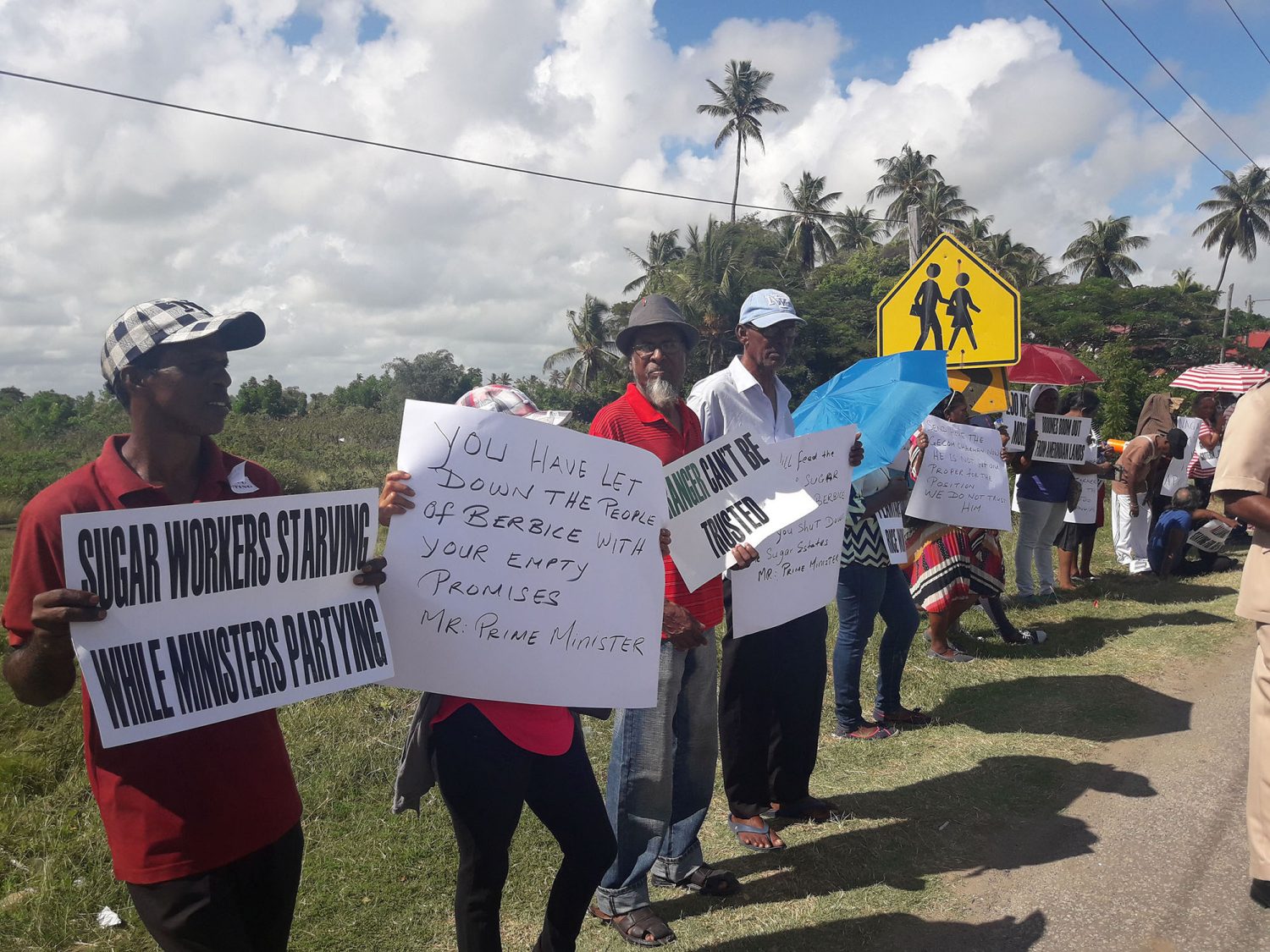By Fitzroy Fletcher
The Caribbean Agri-Business Association (CABA) has been observing, with more than a little passing interest, the unfolding events of the Guyana sugar industry. We have noted the massive financial losses incurred by the industry over many years, and the efforts of the Guyana Government to halt the consequential strain on the national treasury. We have also noted the decision to close or privatize some estates in order to stem the losses, and, “save” the sugar industry. The repercussions of this decision, in respect of social and economic hardship for many thousands, we see are now unfolding.
The underlying problem
CABA, with its extensive private sector experience in agri-business across the Caribbean, and with its mandate to promote the development of the Sector in the CARICOM Region, could not therefore neglect to address the issues of this vital traditional industry.
CABA has examined the available information on the sugar industry region-wide, and has come to the inescapable conclusion that declining field productivity is the fundamental cause for the malaise in this industry. The fact that increasing agricultural productivity is the backbone of successful agri-business played no small part in influencing our analysis.
The Guyana sugar industry is a case in point. Sugar cane yields have been falling gradually and steadily over the past 70 years. They have fallen from an average of almost 90 Tons cane per Hectare (TC/H) in the 1950’s, down to 55TC/H in 2017. This fact alone is sufficient to demonstrate the declining international competitiveness of the sugar industry and signaled its approaching problems.
Past approaches
This data on falling sugar cane yields has been well known to the stakeholders in the Guyana sugar industry, both management and other staff, but the subsidized price received from the European Union (EU) allowed the industry for decades to avoid giving the problem the attention it deserved. With the removal of subsidies by the EU the scale of the problem is now manifested. To the credit of the EU they provided significant resources to the ACP sugar producing countries, including Guyana to plan and prepare for the “reform of the EU’s sugar regime” which in layman’s terms referred to the removal of subsidies. Unfortunately for the local sugar industry these funds did not have the intended effect of enabling it to be internationally competitive.
Incidentally, the experience of the local rice industry was different. The EU support under the “accompanying measures” to help the rice industry adapt to the closing of the “OCT” route, in effect the removal of a subsidy for rice imports into the EU, was channeled through the Caribbean Rice Association, a private sector led Regional body, which utilized the funds mainly for research to improve yields. The result was a resurgent and thriving rice industry.
Close or privatize
The experience of Jamaica has shown that simply privatizing the sugar estates is not the answer. The Jamaican Government sold the Frome, Monymusk and Bernard Lodge estates in 2010 to Pan Caribbean Sugar Company (PCSC), a subsidiary of Complast International, a Chinese company. PCSC invested over US$250 million to renovate the factories. But after years of multi-billion Jamaican dollar losses they announced in January 2017 that they were walking away from their investment. The Jamaican Industry, Commerce, Agriculture and Fisheries Minister Mr. Karl Samuda was quoted as saying, that the success of PCSC was “compromised by inadequate attention to the fields where all the money (in sugar) is made”.\
The way forward
CABA’s recommendations for saving the sugar industry centres around methodologies for significantly improving sugar cane yields. As private sector operatives we cannot overlook the other links in the value chain, such as efficient sugar processing to produce a high quality product, and, effective marketing to take a share of the global market. However, we know the industry has to rest on a solid foundation of high field productivity.
The vital question is, therefore, how can we dramatically turn around traditionally falling sugar cane yields, with minimal increases in field costs? This is an agriculture research question, and CABA has submitted since May, 2017, a detailed proposal, with the help of highly qualified and experienced research professionals, to achieve a minimum of a 50% improvement of yields within 2 years. We have not to date received an actionable response from the Government, perhaps because a two-year time frame looks too far in the future when dealing with the extant repercussions of the estate closings. However, in the meanwhile, we note that the Minister of Agriculture has announced that GuySuCo expects a 42%
improvement in yields in 2018. This of course would be a miraculous achievement, reversing in one year 70 years of falling yields. We admire this announcement by the Minister, reflecting no doubt, the optimism of the GuySuCo research department, since we recognize that this achievement alone would in a major way solve GuySuCo’s problems.
However, commendable this optimism is, we would proffer that the matter of increasing sugar cane yields is so critical to the success of the industry that a major national effort is required researching a range of technologies to identify the most beneficial.
On the related over-arching issue of advancing agri-business development through enhanced research and development, the President of CABA, Mr. Vassel Stewart, who serves also as the Director of the Trinidad and Tobago Agri-Business Association, had written to the President of the Cooperative Republic of Guyana in June, 2016, imploring his support as “Lead Head of State” with responsibility for Agricultural development in the Caribbean Community, in advancing CABA’s recommendations for reorganizing and funding enhanced agriculture research towards accelerating agri-business development in the Region. We still await his response.
The sugar industry’s problems exemplify this critical need in the Region.
Fitzroy Fletcher is the Country Director for CABA






